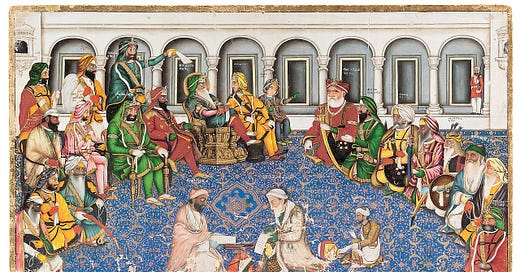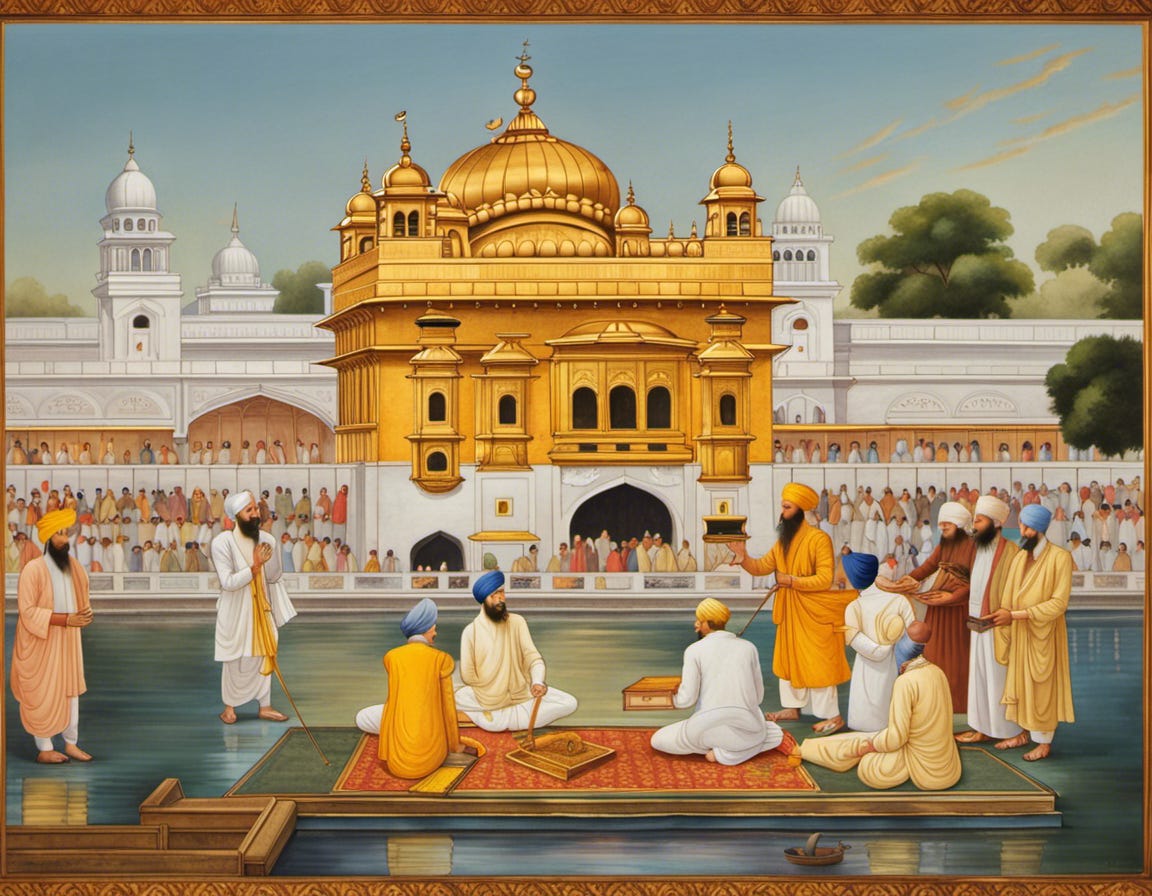Maharaja Ranjit Singh's Birth Anniversary: A Legacy of Tenacity, Unity and Secularism
Ten Key Insights into the Life of a Legendary Sovereign.
Celebrating the Birth Anniversary of Maharaja Ranjit Singh
1. The Birth of a Leader
Maharaja Ranjit Singh, born on November 13, 1780, in Gujranwala, a city now in Pakistan, emerged as a formidable leader in a time of great turmoil. His birth into the Sukerchakia Misl, a prominent Sikh clan, laid the foundation for his future as a unifier and a ruler.
2. The Founding of the Sikh Empire
Ranjit Singh ascended to power at a young age, showcasing remarkable military and diplomatic skills. He founded the Sikh Empire in 1801, marking a significant chapter in Indian history, where he successfully united various factions and established a strong, centralized administration.
3. A Visionary in Warfare
Renowned for his military prowess, Ranjit Singh modernized his army, employing European officers to train his troops. This blend of traditional and modern warfare techniques was instrumental in his numerous victories and the expansion of his empire.
4. A Beacon of Secularism
In an era rife with religious conflicts, Ranjit Singh stood out as a secular leader. He respected all religions, employing Hindus, Muslims, and Europeans alongside Sikhs in his administration and army. This secular approach helped maintain peace and stability in a diverse empire.
5. Architectural and Cultural Contributions
Ranjit Singh's reign saw significant architectural and cultural advancements. He was responsible for the renovation and gold plating of the Harmandir Sahib (Golden Temple) in Amritsar, enhancing its splendor and religious significance.
6. A Complex Personal Life
His personal life was as intricate as his reign. Maharaja Ranjit Singh had multiple wives, which was common among royalty at the time. These marriages often served diplomatic purposes, forging alliances and consolidating power.
7. The Legacy of His Sons
Ranjit Singh's legacy was carried forward by his sons, although none could match his charisma and governance skills. The fragmentation of power following his death in 1839 led to the eventual decline of the Sikh Empire.
8. Champion of the Punjabi Language
Ranjit Singh promoted Punjabi in the Gurmukhi script, fostering a sense of cultural pride and identity. His support for the language was a key factor in its development and preservation.
9. Enduring Cultural Impact
The Maharaja's life and reign continue to inspire numerous works in literature, art, and film. His leadership qualities and dedication to his land and people have made him a cultural icon in Punjab and beyond.
10. The Maharaja's Global Legacy
Ranjit Singh's legacy extends beyond India, with historians and leaders worldwide acknowledging his strategic acumen and progressive governance. He is remembered as a ruler who brought stability, prosperity, and unity to a diverse and fragmented region.
Our Homage on this Birth Anniversary
On this birth anniversary of Maharaja Ranjit Singh, we remember not just a powerful ruler but a visionary leader who left an indelible mark on history. His life's journey, from a young chieftain to the founder of the Sikh Empire, is a testament to his extraordinary leadership and his commitment to unity in diversity.









Maharaja Ranjit Singh ‘s impartiality and secularism is unmatched in the history of modern India.
Like most successful rulers , leaders and businessmen , he made the error of not gifting struggle to his offspring.